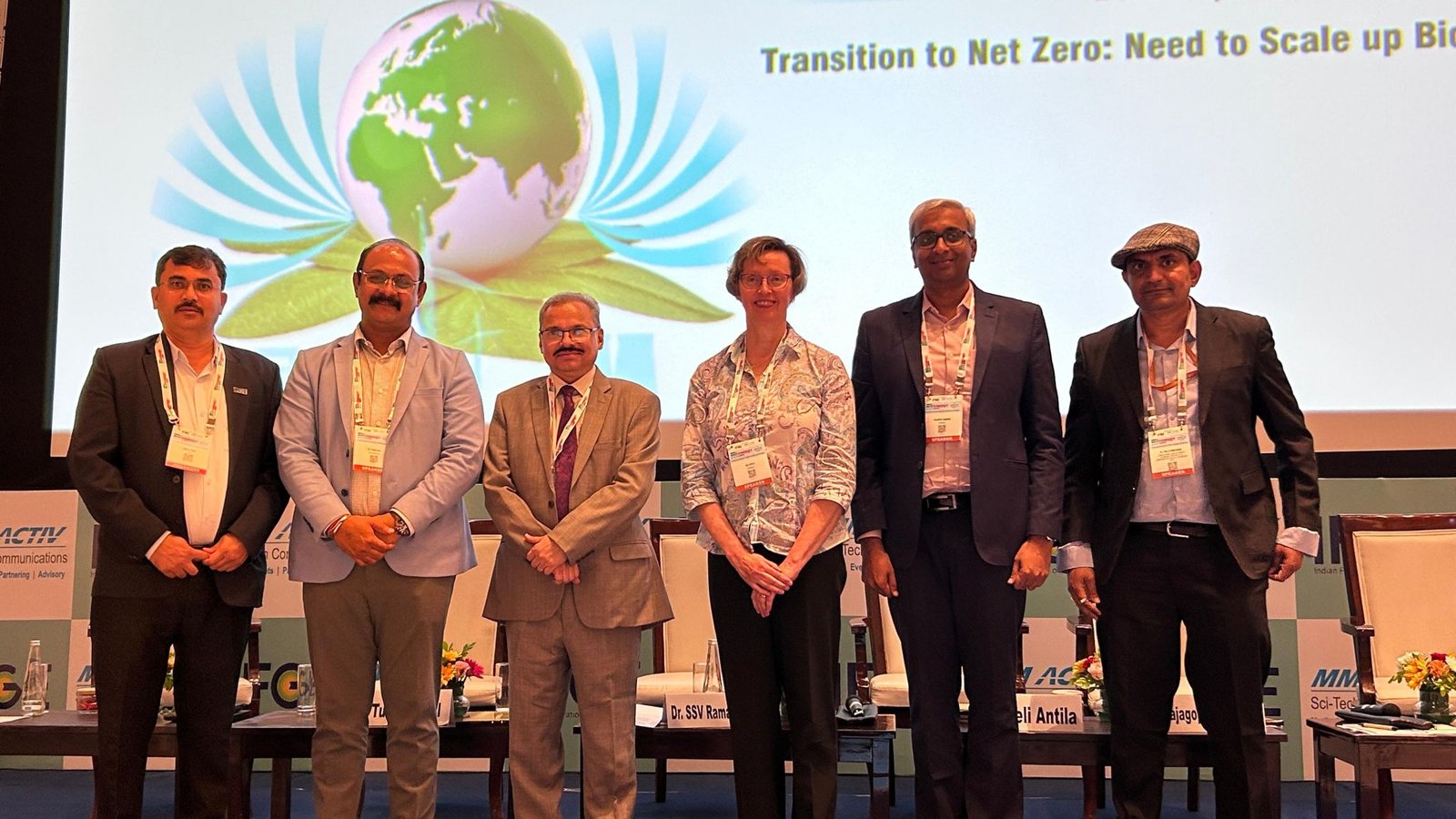Monday, 2 February 2026

On the first day of Second India BioEnergy & Tech Expo 2025, this session Advanced Biofuels – 2G Ethanol Technologies explored how second-generation (2G) ethanol technologies can transform India’s energy landscape, drive rural value creation, and support India’s net-zero goals.
The session witnessed the eminent panellistRajagopal Manohar, Head of TS and Innovation, Novonesis ; Dr Kiran Kumar Challa, Scientist D, Climate – Energy and Sustainable Technology Division (CEST) ; Dr Heli Antila, CEO, Chempolis Ltd; Dr SSV Ramakumar, Chairperson, IFGE: SAFF, EVP/Greenko/AM Green Group and Dr Tushar Patil, AVP, Praj Industries.
Rajagopal Manohar explained how biomass substrates are more complex than 1G feedstocks, requiring advanced, high-volume enzymes for effective breakdown. He shared Novonesis’ 20+ years of continuous innovation in cellic enzyme development, enabling the 2G ethanol industry.
Dr Kiran Kumar Challa brought a researcher’s perspective on 2G ethanol technology, highlighting climate benefits, lifecycle emission reductions, and the need for policy-backed innovation to scale production sustainably.
“Second generation ethanol offers higher Green House Gas savings (GHG savings). Almost 70 to 90 per cent of the CO2 emissions can be reduced when compared to petrol and alsoCO2 emissions can be reduced by 20 per cent in two wheelers and 30 per cent in four-wheelers. Hydrocarbons can be reduced up to 20 per cent”, explained Dr Challa.
Dr Heli Antila spoke about integrated biorefinery solutions, emphasizing circular economy models and how Chempolis’ technology can unlock the value of agricultural residues to produce ethanol and other high-value co-products.
Dr SSV Ramakumar provided a strategic industry outlook, discussing the role of advanced biofuels and SAF (Sustainable Aviation Fuel) in India’s decarbonisation journey and how 2G ethanol complements India’s efforts to reduce crude imports.
“The cost of production of second-generation ethanol is obviously going to be higher in spite of all the optimisation we might make. It is higher than first generation ethanol, and if both of them are to be blended in petrol then 2G ethanol can never compete on cost grounds with 1G ethanol”, said Dr Ramakumar.
Dr Tushar Patil highlighted Praj’s pioneering role in developing, scaling, and commercializing 2G ethanol plants in India, and the importance of collaboration between technology providers, policymakers, and industry players to make 2G ethanol competitive and widespread.